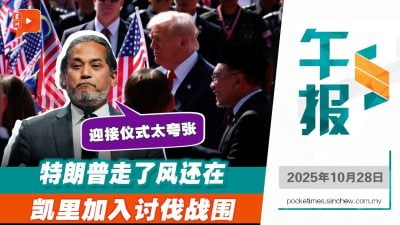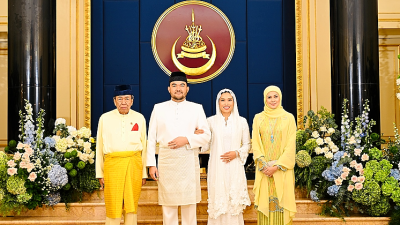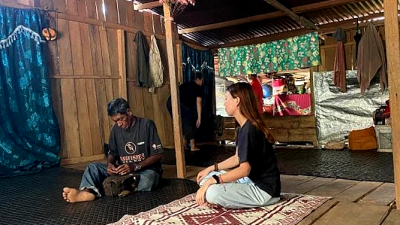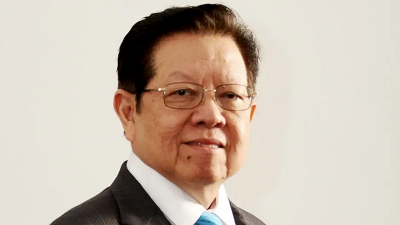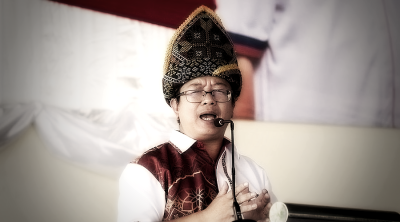PAS has some experienced candidates in mind, but Bersatu is not going to surrender the prized MB post to the Islamist party anytime.
This Saturday will be the polling day for the six state elections, and the past Sunday, August 6, was the final “Super Sunday” of the two-week campaign period, from which we could gain a rough idea how the election outcome is going to be.
The next six days will see contesting parties and their candidates going all out to woo the still undecided voters.
The key to an election victory lies with the Malay vote, as we all know. While many people believe that the Malays are increasingly inclined towards Perikatan Nasional, political analyses and observations reveal that many Malay voters are actually wavering at this moment about whom they should vote.
Sinar Harian survey shows that approximately 85% of the voters in these six states have already decided whom to vote; 12.5% have yet to make up their minds, while the remaining 2.5% are still watching.
Another survey by Ilham Center shows that about 14% to 16% of voters are undecided, while Nusaresearch says 20% of the nine million plus voters in the six states are still sitting on the fence.
Basically, many political analysts seem to agree that a big chunk of the undecided voters are BN supporters in constituencies without Umno candidates.
Umno may experience some difficulty trying to persuade its supporters and grassroots to support PH, and indeed time is running out!
On the contrary, it is much easier for PH’s supporters and grassroots to vote for an Umno candidate.
Basically, there are three situations within Umno: those unhappy with Ahmad Zahid; those who have no issue with Ahmad Zahid’s leadership but are unhappy with Umno-DAP tie-up; and finally those who have no issue with party leadership or PH but are unhappy with the candidates fielded.
Umno will need to seize every available opportunity to appease the boiling sentiment within the party, failing which may risk its supporters turning to PN.
Once Umno manages to address the grassroots emotional backlash and is able to secure the support of PH supporters, the party should be able to bag more seats this time in a bid to fend off the ravaging “green wave” and prove that the PH + Umno cooperation model is workable.
Compared to PH + Umno, PN seems to have the upper hand in wooing the Malay electorate, both in its onslaught before the nomination and during the campaign period post-nomination.
While both rival camps enjoy certain degree of support at their ceramahs, they both realize that getting people to come in droves could be a tall order.
Many voters seem to have lost their passion for physical ceramahs and are instead growingly inclined to absorbing election info on social media, notably TikTok, which PN has an apparent edge.

In Selangor, PN is brimming with confidence having won six parliamentary seats in the state last November. They have reiterated that as long as the Malays come out in droves to vote, they have good chances of winning the state administration.
In other words, if non-Malay voters stay away from the polling stations this time, PN can capture some of PH’s strongholds, in particular DAP’s.
PN has been betting on its powerful Malay vote, better still if some of the Chinese and Indian voters would swing its side.
This strategy is not just applied on Selangor; they are equally ambitious in seizing Penang and Negeri Sembilan. That said, capturing these two states is very much more challenging for PN, although they have a chance in Selangor.
On the surface, PH is still commanding an advantage in Selangor, but to maximize this advantage, as aforementioned, Umno will have to persuade the grassroots to accept and support PH in order to consolidate the unity government’s Malay vote.
In the meantime, PH will need to get more urban voters to come out and vote this Saturday.
At this moment, there are signs the Malay voters may swing the other way, while non-Malay voters appear to be not too passionate about casting their ballots.
PH has had a rather impressive track record in both Selangor and Penang, having run the two states for 15 years now. Although PN was helming the federal administration for a brief duration, it has never ruled these two states. Moreover, the three states run by PAS pale by comparison to PH states.
Although PH’s performance in Negeri Sembilan is not particularly outstanding, given the incumbent MB Aminuddin Harun’s fine image in the state, the coalition still has a definite edge.
While PH should be able to convince the undecided voters with its performance, it has to do much more than that!
PN keeps telling the voters the state elections are a referendum for the PH-led unity government, and indeed such a tactic works to a certain extent, as many voters begin to get confused with the differences between a state and a parliamentary election.
Besides, PN also keeps exploiting the 3R (religion, race and royalty) issues as well as the skyrocketing cost of living to undermine the unity government, although these issues have no direct correlation with the state elections.
PN has already confirmed its candidates for menteri besar in the three states it currently holds. Expectedly, Muhammad Sanusi Md Noor will still be Kedah’s next MB, unless the royalty has something else in mind. As for Kelantan and Terengganu, this is not an issue at all.
At the same time, PN has vowed to capture the three other states now helmed by the PH. Other than Selangor where Azmin Ali will return as MB if the coalition gets to rule the state, no candidates have yet been announced for Penang and Negeri Sembilan.
If Penang falls into the hands of PN, the convention of having an ethnic Chinese chief minister may come to an end, as could be deduced from the way the Gerakan president was treated recently.
Other than Azmin, PN seems to have no other more eye-catching candidates as MB in Selangor. Although PAS has some experienced candidates in mind, Bersatu is not going to surrender the prized MB post to the Islamist party anytime.
Azmin was once the MB of Selangor. From PN’s manifesto, we can see that the old policies have been repackaged for the coming election.
Beaten by his protégé Amirudin Shari last November in Gombak, Azmin is at a disadvantaged position, not to mention that “pengkhianat” tag haunting him.
Notably, if the incident of Sanusi offending the Selangor Sultan takes its effect in the state, there will be increased likelihood the Malays in the state will draw a line between themselves and PN, making it difficult for the coalition to win at least 29 Malay seats.
Additionally, PN lacks any Chinese candidate that can fight with PH in Penang, Selangor and Negeri Sembilan. As they are well aware their chances in mixed constituencies are slim, they have placed their bets on more winnable Malay seats instead.
Now the question: without a non-Malay rep, how are they going to form a multiracial state government?
The above factors and probabilities should serve as an important reference for those still on the lookout. The decision they make will have a major impact on the country’s political environment post-election.
ADVERTISEMENT
ADVERTISEMENT






